The Apple TV+ Launch Survey: Is the New Streaming Service Worth Your Time and Money?
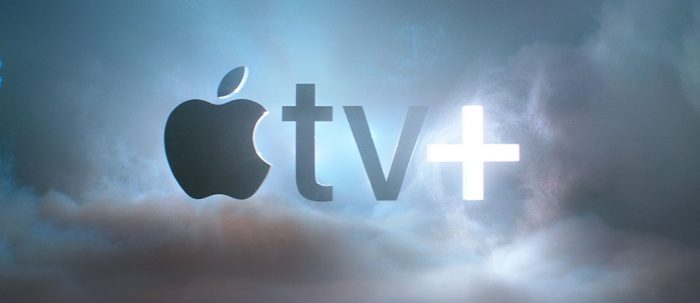
One of the quirkier elements of living in the world of Peak TV™ is that viewers are often told to give new shows time to find their footing. Rare is the TV pilot, no matter where it’s airing, that comes out of the box so fully formed that you can’t help but be sucked in completely. There’s a reason, for example, that HBO’s remix of Watchmen has captured the imaginations of audiences so quickly. It’s not just that Damon Lindelof is taking big swings with his depiction of a post-Rorschach world. It’s that the pilot felt like a statement of purpose in ways many opening episodes don’t. (What a shock that one of the great modern pilots is another one he co-wrote, that for Lost in 2004.)
But as has been made plainly clear lately, there’s a lot of TV. So much. Far, far too much, which makes the choice to invest your time in any show a fraught one. Why on Earth should any of us dedicate four to eight hours of our lives on the majority or entirety of a full season of TV in the hopes that it might get better eventually? Over the last couple weeks, we’ve gotten more options on our collective pop-culture plate. Disney+ goes live on November 12, with a handful of new shows including the Star Wars entry The Mandalorian. HBO Max was unveiled at an investor presentation earlier this week; it arrives next May, with tens of new shows, eventually including a Game of Thrones prequel. Add to that every other channel you already have to watch TV shows, and investing in just a pilot is hard enough.
One of the marquee arrivals in November is Apple TV+, the new streaming service you can access on your iPhone, MacBook, or, of course, your Apple TV. (If you purchase an Apple device like those, you’ll get a year of the service for free.) Four shows premiere this Friday on Apple TV+, representing a wide spectrum of genres and presumed audiences. The Morning Show is a splashy, big-budget drama about morning television. For All Mankind is a period piece about the space race between the United States and the Soviet Union. See is a post-apocalyptic adventure about the last vestiges of humanity. And Dickinson is an anachronistic comedy about poet Emily Dickinson. They’re all very different, and trying very hard to get your attention. And each of their pilot episodes take big swings, without always connecting.
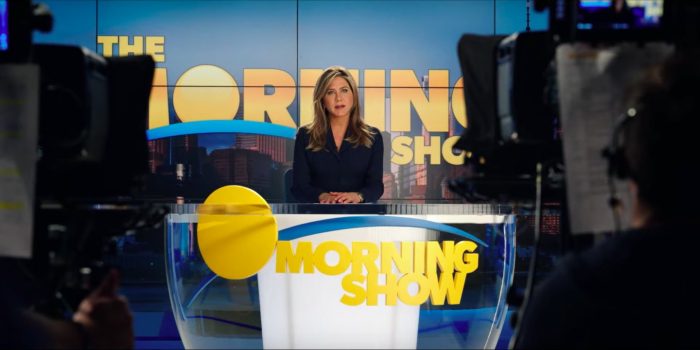
I Don’t Know What We’re Yelling About
A couple of years ago, when Apple’s new streaming service had been announced without many of the details, The Morning Show was one of the biggest deals they could brag about. Here was a show about American TV journalism, inspired by the book Top of the Morning, by cable and print journalist Brian Stelter, with some pretty high-wattage stars: Jennifer Aniston, Reese Witherspoon, and Steve Carell would all be among the leads of the program, with the ensemble filled out with Mark Duplass, Gugu Mbatha-Raw, Nestor Carbonell, Billy Crudup, and more. Apple ordered two seasons instantly.
From all accounts, though, The Morning Show has had a rocky road to completion. That “couple of years ago” reference above unfortunately means this show was greenlit before men like Harvey Weinstein, Louis C.K., Matt Lauer, and Charlie Rose were slammed with serious and disturbing sexual-assault allegations. A show about modern TV news couldn’t ignore these facts, and what eventually became The Morning Show fully slid into the #MeToo era. The setup of the pilot episode is that the popular daytime show that serves as the drama’s title is rocked when one of its anchors, Mitch Kessler (Carell), is accused by multiple women of sexual abuse, and his co-anchor Alex Levy (Aniston) has to weather the storm on and off the air after Mitch is subsequently fired.
Though the show is purportedly a work of fiction, it’s not…y’know, that hard to imagine who might serve as inspiration for this logline. Separately, The Morning Show follows cable-news journalist Bradley Jackson (Witherspoon), who inadvertently goes viral after she berates a coal-mine protester during one of her remote shots. Jackson is invited onto The Morning Show, in a contentious interview with Levy that inspires the network’s news head (Crudup) to shake things up further.
The Morning Show could easily work, if it knew what it wanted to be. The pilot, unfortunately, doesn’t have a clue. The show was created by Jay Carson, but Carson left the program before it began airing, and its new showrunner, Kerry Ehrin, gets a “Developed by” credit. Both are credited with the script. Though there are a few bright spots in the opening hour, specifically a very oily Crudup as well as Aniston channeling the flighty energy of Rachel Green into a more seriously frustrated heroine, there is also a lot of yelling. A lot. It’s not that these characters might have bad reasons to be angry, but more often than not, the shouting feels performative and false. (Alex, when watching Bradley’s viral video, comments that Bradley must have known she was being filmed, right after we hear Bradley shriek that she’s exhausted of the fighting.)
It would also be helpful if this show about how journalists cover the news had a firm grasp of what its characters think about the news. During the climactic interview between Bradley and Alex, the latter seemingly chides the former for becoming the story. Yet the real problem is that Bradley’s own opinions (and arguably the show’s) are hollow and wishy-washy; when given the chance to clarify which side of the coal-mine protest she falls on, Bradley says, “The human side.”
The little hope I hold for future episodes of The Morning Show is that eventually, someone will figure out how to make such an A-List cast and easy premise work. One thing that would be helpful, and I do want it to improve, would be better writing. To call this pilot Sorkin-lite in its rat-a-tat-style dialogue and walk-and-talk energy would be an insult to “lite”. But for a pilot episode putting its best foot forward, this show struggles to say anything profound or timely, even as the era of public male figures being put through the ringer continues apace.
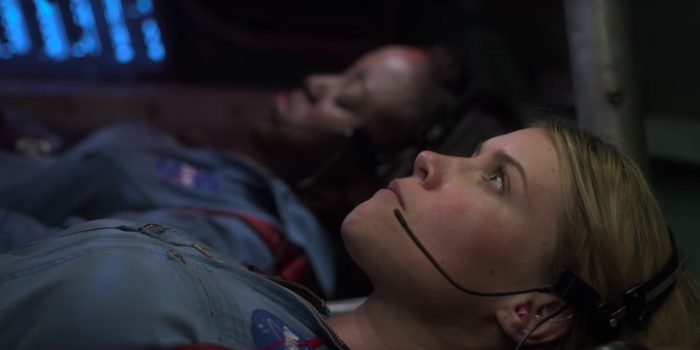
One Small Step For Man
At the outset, For All Mankind was the Apple TV+ show I most wanted to see. The drama’s driven by a single question at the outset: what if the Soviet Union had won the space race of the 1960s and placed the first man on the Moon, instead of the U.S.? That alone was intriguing enough; add to that the show’s creator, Ronald D. Moore of the excellent Battlestar Galactica revival, and I couldn’t wait for this show to arrive. For All Mankind is, at least within the pilot, a more somber affair than might be expected, but it has glimmers of possibility around the bend.
The pilot begins with a slew of Americans, many of them either NASA officials or astronauts in the Apollo program, watching in disappointment and heartbreak to a newscast transmitting the footage of Soviet astronauts stepping on the Moon for the first time. As a simple reversal of what all Americans at the time actually experienced, it’s a striking, moody, and haunting opening. And in the fallout, the U.S. seems less emboldened to push back against being the space-race losers, and more willing to walk away from the fight. When Apollo astronaut Edward Baldwin (Joel Kinnaman) voices some of the reticence on NASA’s part since the (real) Apollo 1 fire to a reporter, he gets in hot water even as the Apollo 11 mission is potentially the final attempt on America’s part to arrive on the Moon.
Your mileage may vary, but the appeal of For All Mankind is similar to the appeal of the excellent 2018 space-bound drama First Man. Though that Damien Chazelle-directed depiction of Neil Armstrong’s ascent to the Moon documented one of the great triumphs of modern American history, it was a darker, sadder affair filtered through Armstrong’s personal failings and the loss he experienced both at home and at NASA (with some of his colleagues dying in the Apollo 1 fire). For All Mankind is, as its title would suggest, an ensemble effort, blending some real figures like Deke Slayton and Gene Kranz with fictional astronauts and their families. But the same blend of wistfulness and loss from First Man is present in For All Mankind. It doesn’t automatically make for a truly rousing show, but the finale covers that base very effectively if in manipulative fashion.
What I hope ends up being the case with the rest of the season is that For All Mankind is freer to expand its viewpoint and become as thrilling as possible. Moore’s take on Battlestar Galactica could get bleak, too, but it was able to balance excitement with heartbreak. The first hour of For All Mankind leans perhaps too heavily on the latter emotion, but with the space race still on between the two countries in this alternative-history program, the competition should heat back up.
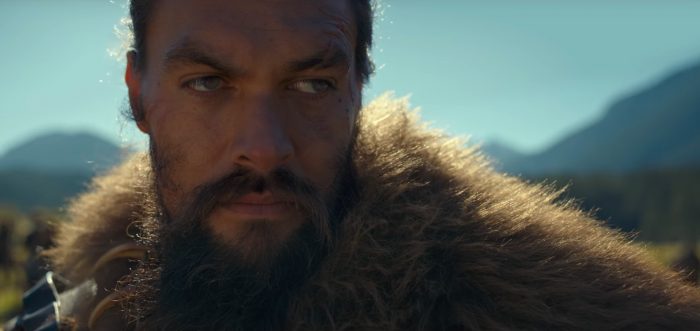
I Once Was Blind
One of the intended draws of Apple TV+ is that its shows are, like many successful recent small-screen shows, big and bold. They are small-screen stories that feel much bigger in every way. This quartet of newbies are not low-budget affairs, either because of cast salaries or because of the stories’ respective scopes. Take, for example, See. Though the show doesn’t boast the most famous cast, it’s meant to have the epic sweep and style of major Hollywood blockbusters. All eight of the episodes in the first season are directed by Francis Lawrence, who helmed a number of the Hunger Games films, and the lead is Aquaman himself, Jason Momoa.
So why is it that See is irretrievably silly? Part of the issue is the premise. Set centuries in the future, See focuses on the few survivors of a world-destroying virus; those survivors now live in various tribes around the world, and they are also all blind. In fact, they’re so blind that the very notion of vision is perceived as heretical, and anyone who talks of it is considered a witch. In the pilot (written, as will be the case for each episode, by Steven Knight, writer and director of Serenity), a pregnant woman gives birth to twins while her husband (Momoa), the leader of their tribe, attempts to head off an attack from emissaries of the mysterious Queen (Sylvia Hoeks). It turns out that the pregnant woman is a recent entry to Momoa’s tribe, and the father of her children is one of those heretics talking about the power of sight. So the entire tribe is marked for death, and they wind up on the run to protect themselves and the newborns, who might somehow be able to see.
What works for See is its sense of narrative drive. Of the three hourlong series Apple TV+ is premiering on November 1, See has the clearest idea of the kind of dark adventure it’s telling. That said adventure is awfully silly is its own problem, but against The Morning Show and even the largely intriguing For All Mankind, it was nice to watch a pilot that felt like a coherent first chapter to a pulpy sci-fi novel. Momoa, whose big breakout role was on Game of Thrones, is well suited to playing the brawny and gruff Baba Voss, too. And Lawrence’s capability of rendering the wilderness of Northern Canada (where the show was filmed) creates some impressive imagery.
But See cannot escape its inherent goofiness, with Knight sometimes leaning into that goofiness. (When we first meet the Queen, she is praying while achieving some kind of orgasm, because of course she is.) It often comes down to character names, like the aforementioned Baba Voss, or the unseen heretic father of the twins, named Jerlamerel. Credit to the actors on this program who have to say that name without bursting into a fit of giggles. The balance of this very dumb idea with a lot of faux-profound pronouncements and stultifying dialogue, too, doesn’t help this show out at all. After the pilot, I would be lying if I said I wasn’t curious where this show is going. But See might land as the kind of fun hate-watch that Knight’s Serenity has become since it arrived in theaters earlier in 2019. It might be bad, but the kind of bad that’s enjoyable to suffer through.
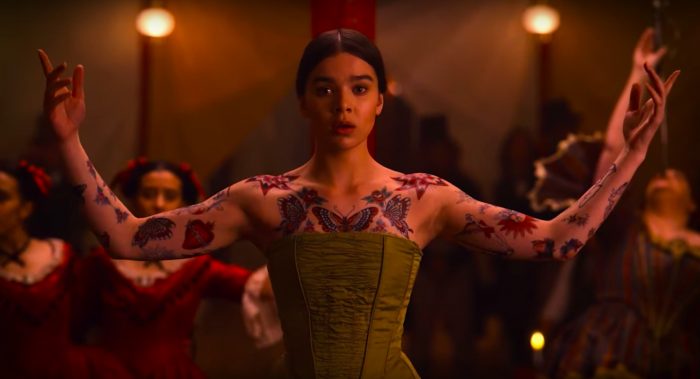
Because I Could Not Stop For Death
How is it that I can explain my mild enjoyment for Dickinson? On the face of it, this show sounds like either a dead-in-the-water pitch or a parody. What if there was a young-adult comedy-drama about the young Emily Dickinson, a show set in the 1800s wherein the title character talks like she’s traveled back in time from 2019? What if there was a show where Wiz Khalifa played a hallucinated version of Death, riding a carriage driven by ghostly horses? What if Emily Dickinson’s mom was played by Jane Krakowski, thus inspiring the thought that this is indeed a 30 Rock satire on streaming options, and Jenna Maroney is playing her mom instead?
Dickinson should not work, and yet, for whatever reason — call it the courage of its convictions, or me just syncing up with this show’s loopy sense of humor and storytelling — this first half-hour is confident and defiant enough to make me want to watch more. The show’s greatest asset is its lead actress, Hailee Steinfeld. Best known for her Academy Award-nominated role in the Joel and Ethan Coen remake of True Grit, Steinfeld has recently carved out an odd little niche for herself in films like The Edge of Seventeen and Bumblebee as an ingenuously quirky performer. That same style imbues her take on Emily Dickinson with an appropriate amount of verve and ebullience.
In the pilot, directed by David Gordon Green and written by creator Alena Smith, Emily chafes at the reality of her world and the fantasy driven by her poetry. She’s got a good enough life, with her father (Toby Huss) a respected lawyer aiming to run for political office and siblings she loves. But Emily wants her dark poetry published, which her father cannot abide, and she wants to not be married, which her mother cannot abide. That latter element becomes troublesome when her brother Austin (Adrian Enscoe) announces he’s getting married to Emily’s best friend Sue (Ella Hunt); considering that Emily and Sue have designs on each other, Sue getting married would be decidedly inconvenient.
I can easily envision a scenario in which Dickinson falls apart in future episodes. Emily’s imagined conversations with Death are striking, not just because they look more sumptuous visually but because Steinfeld and Khalifa have a striking, off-kilter chemistry. But as the show continues to bring in other recognizable faces — apparently, the very funny stand-up John Mulaney will show up as Henry David Thoreau this season — that gambit might feel much more hit or miss. And the balance between old-fashioned dialogue and hipper language might get wobblier. But based on pilot episodes, I can comfortably say, as surprised as I am, Dickinson is the show whose second episode I most wanted to watch.
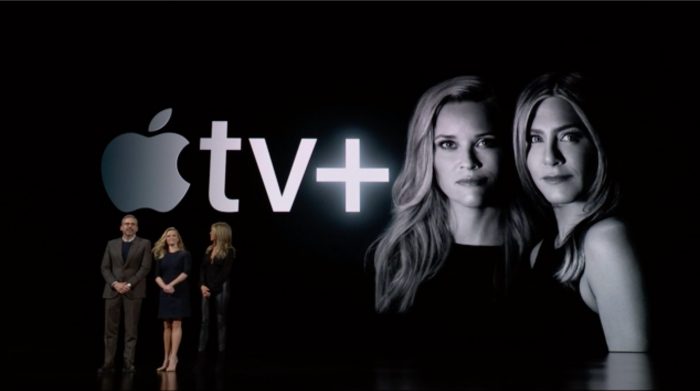
What to Watch For Next?
I’m a curious sort, so I’m going to try out the second episodes of each of these four series. But in truth, there are just two shows with second episodes I genuinely want to see: Dickinson and For All Mankind. Each of these shows offer enough promise for what could come next in their respective stories, and I genuinely want them to succeed. But the problem Apple TV+ is likely going to have at the start is simple: none of these shows are appointment viewing, and since they are basically the entire offering on opening day, that’s bad. Hopefully some of the programs here will get better, just as it’ll be nice if upcoming Apple TV+ shows — such as M. Night Shyamalan’s Servant and the podcast-drama Truth Be Told, arriving in December — kick things off on a surer foot than these shows have. But first impressions are important, and these shows make, at best, a very mixed sort.
The post The Apple TV+ Launch Survey: Is the New Streaming Service Worth Your Time and Money? appeared first on /Film.
from /Film https://ift.tt/34jAcEI
No comments: